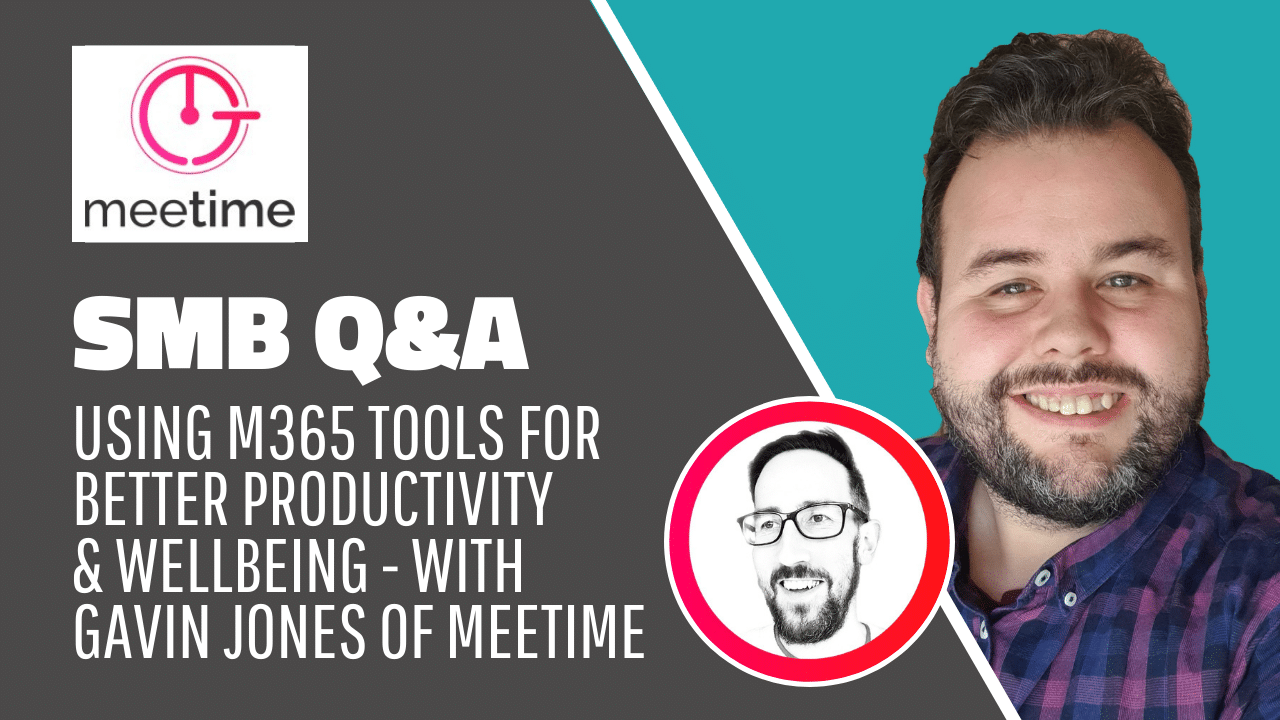 One of the first questions I ask any potential new client who wants me to provide help for their IT business is “What is your current turnover?”. Unfortunately, a great many business owners don’t even have a rough idea of the financial situation of their business.
One of the first questions I ask any potential new client who wants me to provide help for their IT business is “What is your current turnover?”. Unfortunately, a great many business owners don’t even have a rough idea of the financial situation of their business.
“My accountant knows my finances”
They might, once a quarter – or even once a year – bundle a load of receipts, bills and invoices and pass this to their accountant, who comes back a few weeks later and tells them whether they’ve made a profit or a loss.
Some owners have a rough idea of how their business is fairing financially, but can’t tell you on a week to week basis what money they have, what they owe and what they are owed. This leaves them in danger of some nasty shocks – how accurately can you gauge business success on gut instinct alone? These owners could use procurement or expense management software to consistently track their cash flow, but they do not.
Ultimately, a good business of any size will have regularly produced management financial accounts – which gives the stakeholder (and any interested 3rd parties – such as vendors and distributors who you are requesting a line of credit from) the ability to gauge where their business is financially at any time.
Creating a weekly financial report
But one very useful technique I teach IT business owners is to start the production of a weekly financial report.
The weekly financial report should be a very simple “snapshot” of certain measurables within the business. It might contain five numbers as simple as:-
- Total cash in the bank
- Total amount of bills due for payment
- The current VAT or local taxes liability
- Total amount of invoices outstanding
- Total amount of invoices now overdue
This report should take no more than 5 minutes for somebody to regularly prepare, and should be distributed to the stakeholders within the business to make them aware of the current state of the business.
If you’re the only stakeholder within your business, don’t produce the report yourself (because I can tell you that it will never actually get done) but ask your book-keeper to produce this report and e-mail it to you every Monday morning.
What can be measured can be managed
There is an old phrase I’m very fond of – “What can be measured, can be managed”.
By producing a regular weekly financial report, you’ll start to take a keener interest in how your business is actually fairing.
- You will no longer be surprised at the end of the quarter when you don’t have enough money to pay your taxes.
- You will start to question why you are owed so much money and ask… nay demand, that people pay you on time!
- You will start to pay your suppliers on-time
And ultimately, when someone asks you the question of “What is your turnover” you’ll find you’ll be able to give them a more accurate answer rather than a finger in the air approach.
Conclusion
The goal of a weekly financial report is not to turn you into an accountant overnight, nor will it give you the truly key metrics you need improve to really grow your business, but for those of us who are more interested in doing the work than counting the pennies, it will help you to by beginning to open your eyes to how your business is actually performing.
photo credit: Dyanna Hyde via photo pin cc















Comments
9 thoughts on How to get a grip on your small business finances with a Weekly Financial Report
RICHARD TUBB
23RD AUGUST 2012 08:01:22
We've also taken this discussion to Branch, the new Social network from the creators of Twitter where we've asked "What financial metrics should a Small Business be measuring?". Feel free to join in the conversation at Branch - http://tubb.co/PI0NRq
VAUGHAN SHAYLER
23RD AUGUST 2012 08:15:55
These relate largely to cash, and cash position of the business (present and future). It is also vital that business owners understand the accounting position of their business, which unfortunately requires dipping in to the murky world of accountant-speak, and particularly accrual accounting. Cash is only one (and axiomatically often only a small one) of the indicators of a business' financial health. If you license software, or deliver services over a period following receipt of income (recurring revenue anyone?) for example, then you need to fully understand the concepts of income deferral and income recognition. It's a complicated area (for my simple, mathematically driven brain anyway) but essential. I was first alerted to it years ago in my first role running a small business for someone, when I said to the accountant "The owner has said we can buy that computer out of next month's cash-flow" and he sneered back "One does not purchase things out of cash-flow". I nodded sagely whilst thinking "what on earth is this man talking about" and went away to investigate. He was right, although he could have delivered the message a whole lot more positively (but that's a subject of many other blog posts elsewhere), and that was when I realised the message above - both the cash position and the accounting position (my terms by the way, an accountant would probably sneer again!) are vital, as is managing them together. Lots of cash (or even a healthy PLUS figure after producing the metrics you suggest) does not necessarily mean a viable, healthy business. But it might. And that, I guess, is my point.
RICHARD TUBB
23RD AUGUST 2012 08:22:41
Vaughan - great point, thanks for sharing. The focus on the Weekly Financial Report for me, as a complete financial dullard, was to understand the pressing issues when I owned an MSP. Does anyone owe us money? Do we owe anyone money? Can we pay them? I've found these simple questions have helped nurture an interest in both myself and other business owners to learn about the more complex areas you've spoken of.
TIM LONG
23RD AUGUST 2012 13:06:27
I really lament the demise of Office Accounting. Microsoft had a gem of a product there, that they mismanaged right from the start. They gave it away for free (!) and then worked out it was costing them money and cancelled it. What a shocker! I still use it - support or no support, its a great product.
RICHARD TUBB
23RD AUGUST 2012 14:28:01
Tim - you are not alone in missing Microsoft Office Accounting! However, I've been using Kashflow (http://bit.ly/l6Qp17) for 18 months or more now and highly recommend it. Very, very easy to pick up. Low cost. Intuitive and has great support from a UK team.
ED
24TH AUGUST 2012 09:31:17
Hi Richard, Just to say a great blog - something I find really hard is how businesses survive without doing things like this - the penny really dropped for me on liabilities when Co-op Web just had a single bank account which I would look at and think "brilliant, we've got lots of money" but then you realise that actually you owe half of it to the taxman in various guises or it's money you've not yet actually earned (the deferred income problem) but that could easily happen after you've spent the money. The best thing we did for seeing a snapshot of where we were was actually to make a load of bank accounts then whenever an invoice got paid we'd move the VAT into a separate account, then if it was a deferred amount move the whole amount over to a different account which we then drip fed it back into the main account. Corporation Tax was a bit more tricky to calculate but we made an estimate each month and put that away in yet another account. That really helped. Nowadays (as we are programming geeks) we wrote our own book-keeping system that does all of this stuff for us; we also find that we work on lots of long jobs with payment at the end so needed to know forecasts for the next few months when we would be getting money and accounting for that money not invoiced yet but some work completed. But the basics of a few bank accounts and a simple process really sorted out the early days for us....
RICHARD TUBB
24TH AUGUST 2012 09:54:09
Ed - thanks for the kind words about the blog, and I appreciate you sharing your own thoughts on this subject. Like you, I have always kept track of VAT liabilities, and also put money aside into a separate high interest business bank account to cover Corporation Tax. It's simple, but very effective and prevents the sickening horror of realising you owe the tax-man without the means to pay him!
ALAN BRIGGS
28TH AUGUST 2012 11:20:55
Sadly this is a very common situation in small and medium size businesses. Many just check their bank balance via the internet or increasingly by mobile phone, some just have a limit set up and get a warning text when approaching it! Huge number work blind and when I ask why they don't have the information they tell me either they don't have time or leave it to their accountants. A while back I was requested to help a hairdresser’s salon with their 'business organisation.' This consisted of them keeping a list of customers whose hair they cut an styled and the products they sold them each week. At the end of each week they bagged up expenditure, invoices and receipts/ till rolls and passed them to their accountant who handled everything. When I raised my concerns they told me that this arrangement had worked well for several years They thought all was well then suddenly just as I started to help them they got an unexpected large bill from HMRC for VAT which was outstanding. Of course they could not cover it and we moved into a business closure phase. My comment to every business is don't make the same mistake. Of course these businesses usually spend more time and effort planning their 2 weeks holidays than they do carrying out planning in their business during the other 50 weeks that pays for their holiday and more importantly their survival.
RICHARD TUBB
28TH AUGUST 2012 11:50:01
Alan - thanks for sharing your story with us, worrying though it is that it confirms not enough businesses pay attention to their finances. I think you summarised it best when you said that without a grip on their finances, many businesses are "working blind".